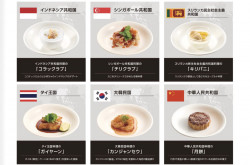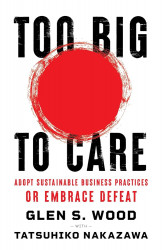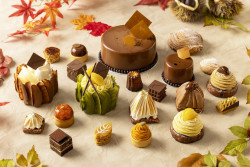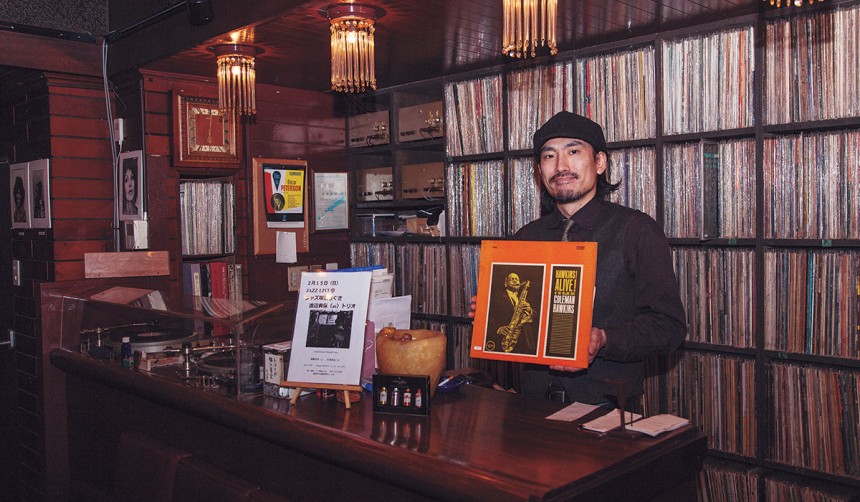
In 1859, six years after Commodore Perry arrived in Japan, the Port of Yokohama opened, which was one of five ports used for trade between the United States and Nippon. Five decades before the Wright brothers flew, leading to the airplanes that would connect the world, the seas were the primary mode to reach foreign lands and transport goods.
Upon arrival into Yokohama Harbor, when tired seamen reached shore, the first place they would have seen was Noge, a neighborhood of alleys filled with restaurants and bars that bordered the sea before a land reclamation project turned part of Yokohama Bay into modern Minato Mirai, filled with the high-rises and shops found in most major cities.
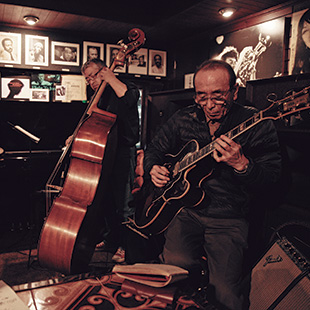
(Photo by Kohji Shiiki)
Minato Mirai means “Port City of the Future”—and only in a sailor’s dream, after too much rum, would a swab envision the glitzy business district that exists today, complete with an amusement park and a Ferris wheel taller than the tallest mast. Perhaps, one certain attraction would garner greatest attention from crews: The Nippon Maru, a ship built in 1930 in Kobe, and used to train merchant marine cadets. The stout vessel remains docked permanently as a museum beside Landmark Tower, until recently the second-tallest building in Japan. The Noge neighborhood has changed very little, as buildings around it rose from the sea.
Noge continues to open arms and tables to sailors, travelers and locals who just want cold drinks and tasty food for reasonable prices. As skyscrapers empty and people spill into the streets, the old neighborhood is still a favored haunt for those wishing to swill some drinks with their mates. But, with so many options, it can be daunting to find the right haven for swashbucklers seeking to soothe the savage beast—and belly—inside us all.
Jazz café Chigusa is known to many in Noge primarily because it’s the oldest of its kind in Japan. It’s a place where talented performers have been resting their feet after concerts since 1933, as they chilled at tables among other customers and listened to songs over beverages. The manager, Shima-san, pays great attention to all who saunter into the place, whether a headliner on tour or a bicycle mechanic from down the street.
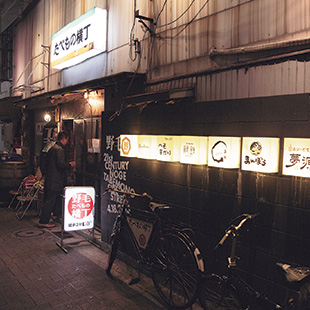
(Photo by Kohji Shiiki)
In here, all patrons are just admirers of rhythm, all lost in peaceful bliss brought forth through enormous speakers. After eighty years, the place remains a simple and pleasurable spot to wet dry throats, with all drinks a mere ¥500 and snacks such as cheese, salami and nuts on offer for munching. This is not a place to discuss business, but rather a chill zone where music enjoys priority and patrons pay respect to this philosophy with soft whispers. You may find recent Japanese jazz greats such as trumpet player Hino Terumasa or pianist Toshiko Akiyoshi, who’s an acclaimed musician in New York City, seated at a table beside you—and if so, just nod and smile. At Chigusa, the mood is groovy and all aficionados are welcome.
As you emerge back onto the street, tunes still echoing in your ears, your stomach may require more sustenance. So walk a few minutes to nearby Tabemono Yokocho—a covered, cave-like alley where eight restaurants offer their fare, and there are even opportunities to belt out songs. With reasonable food and drink prices as well as regular specials, this place will appease finicky foodies looking for a fresh bite. Hang out and watch sports at one restaurant, then walk a few steps to Bistro Graine Marche and try their quiche Lorraine … or perhaps BBQ, deep-fried pork, teppanyaki or sushi is what you savor on this particular evening. No matter, as it’s all delicious and offered in a dim, comfortable ambiance that entices relaxation and laughter as well as hunger for the delicious food. A small karaoke room offers an intimate space to practice that sultry voice normally only heard in the shower. If you need a reason to get out of your room this rainy season, how about free tapas (snacks) available at all eight restaurants when it’s raining? And you don’t even have to board a ship with a sword to obtain these treasures. Just purchase an inexpensive drink, with most varieties priced at ¥500.
If the smoke wafting into streets carrying scents of the freshly-grilled variety is too thin for your liking, head back to Sakuragicho Station and go one stop over to Yokohama Station. Walk from the west exit, turn and keep right past the shops, hugging the fence, for about three minutes to get to Tanuki-koji Street, which you’ll see on your left. Look for a tanuki (raccoon dog) on a sign hanging over the entrance. This alley—more like a hallway—shields a dozen restaurants from the surrounding corporate mediocrity. Although the area’s much smaller compared with historical Tokyo neighborhood Golden Gai, Tanuki-koji is a pleasant place to escape crowds and immerse yourself in traditional vibes. But be careful: With seating for only six or seven customers at many counters, you could quickly lose your place at the table.
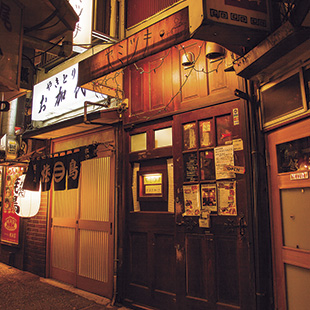
(Photo by Jeff W. Richards)
If you’re feeling in the mood for some pork, try Mai-chin, your destination where every part of the pig is prepared and devoured after dipped into tasty sauce; with duck eggs and jellyfish also listed on their menu. Tonkotsu (pork) ramen, gyoza, tempura and yakitori can also be seen and sniffed while walking past entrances.
A wine bar named Yamitsuki is where you can find Koji Hiraishi, a friendly owner who’s happy to provide information in English about the alley where real tanukis would probably enjoy getting drunk and rowdy. Hirashi-san’s specialty is meat stew, but he also carefully makes pizza and Italian sausages. His assistant, Chiharu-san, who wears a wonderful smile, will gladly give a tour of the bar’s rich wood interior. Upstairs, bar stools allow patrons soft places to pause after a busy day and listen to mellow bossa nova music flowing from speakers at low volume, as wine slides down your throat. Soda and juices are also available for those not alcoholically-inclined. Just keep your voice low when ordering soft drinks, as you never know who’s listening—and sailors are often touchy about their rum.
Jazz café Chigusa (Noge): Tel: 045-315-2006. Beer served 12-5pm, Tue-Sat; 12-6pm, Sun. Hard alcohol available 5-10pm, Tue-Sat. Closed Mon. Nearest station: Sakuragicho or Keikyu-Hinodecho. http://noge-chigusa.com
Tabemono Yokocho (Noge): For information in English, contact the Graine Marche Bistro at 045-243-2230. Open 5pm-12am. Nearest station: Sakuragicho or Keikyu-Hinodecho.
Tanuki-koji alley: Restaurants start opening at 5:30pm. For information in English, contact wine bar Yamitsuki at 045-290-3121. Nearest station: Yokohama.
